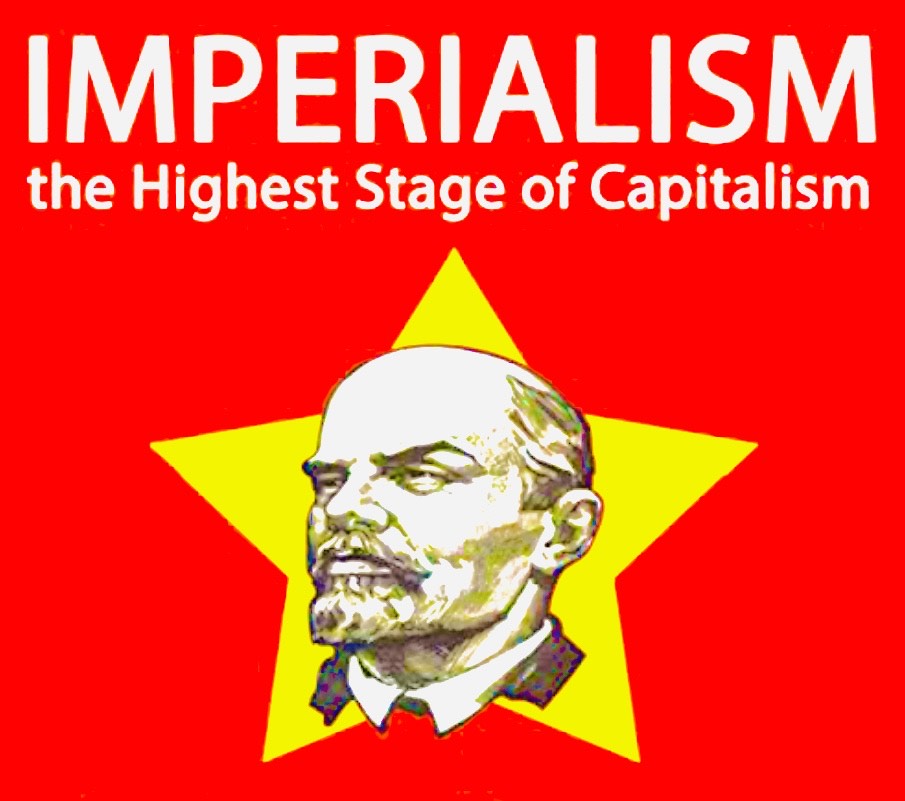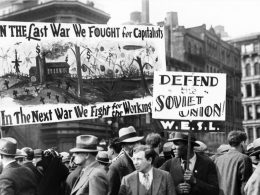There’s a difference between what a political force purports to be, and what kind of impact it actually has on history. The Narodniks were probably the most “radical” force within pre-revolutionary Russia. Yet in practice, they acted as a hindrance to the advancement towards Russia’s next developmental stage by embracing a foolish terroristic policy. The equivalent was true for the anarchists. The effect these kinds of ultra-radical, ultra-left elements had was not to help with revolutionary progress, but in effect to assist the reformist elements.
This is because when a society’s subversive and clandestine political forces are dominated by actors who lack a serious practice, and adhere to a dogma that keeps them from becoming serious, the forces that get helped are the ones which represent a reformist kind of “opposition” towards the ruling class. Because in a political landscape where those who intend to overthrow the state are primarily unserious people that can’t offer the people a genuine path towards improved conditions, by default the people gravitate towards those who seek to maintain the state while tweaking its governance. That’s what we’ve seen for so long in the United States. Because radical politics here have mainly consisted of anarchists ever since the Panthers got defeated, the people’s most readily apparent source of working class representation is reformist social democrats. (Which in America means “progressives” who are subservient to neoliberal Democrats.) Under conditions where communism isn’t mainstream, the average person won’t find out what communism means. And since the most visible types of radicalism lack the theoretical ability to become actual threats towards the state, the people either remain politically apathetic, or invest themselves in the Democratic Party.
In recent years, communism has been rising again. And with the emergence of the resistance to the Ukraine proxy war, the opportunity has appeared to take communism back into the mainstream by harnessing working people’s anger towards the war’s inflation. What the Democratic Party and its discourse agents seek to do is stop this rebuilding of the communist movement by infecting communism with ideas which make it just another one of those ineffectual “radical” strains, its members wanting revolution so badly yet ironically undermining their own ability to be effective. To carry out this co-optation, these agents are at the moment trying to popularize a certain idea within communist circles: that we shouldn’t treat fighting imperialism as our foremost priority.
There are two ways they’re doing this. One, by effectively trying to replace anti-imperialism with a version of “anti-colonialism” that’s anti-Leninist, its ideas informed by a moralist framing of our conditions rather than a materialist one. Two, by acting like the contradictions within the anti-imperialist movement are not the secondary issue, but the primary issue. This provides an excuse to discard any anti-imperialist coalition that includes individuals or orgs leftists deem untouchable. Which, despite their claim of simply being principled, is a standard that draws the rather arbitrary boundary of: “if this isn’t on the left, or what I consider to be the “respectable” part of the left, then it should be treated as an enemy.” It’s shallow respectability politics.
The first type of discourse manipulation naturally goes along with the second. Because the criteria for who isn’t acceptable to build anti-imperialist coalitions with is dependent on who doesn’t adhere to the types of anti-Leninist theory that these gatekeepers embrace. To see what kinds of ideas this distorted version of liberation theory consists of, understand that its origins are fundamentally detached from the ideas that come out of genuine social practice. Even when it purports to come from Marxists like Fanon, its interpretation of Fanon is one that omits the Leninist character of his ideas. The ideas it truly overlaps with are the ones found within liberal social critiques, like the ones from the New York Times’ 1619 Project. In other words, ideas that (on their own) pose such a lack of an institutional threat that imperialist propaganda outlets are glad to publicize these ideas, since they see this as a way to placate developing radicals. The only way these ideas about settler-colonialism can gain a revolutionary character is if they’re coupled with anti-imperialism, of the kind that’s multi-tendency and effective. Which is a synthesis that liberals, and even moreso radical liberals, vehemently reject.
This liberal co-option effort placates radicals by leading them to the idea that they don’t mainly need to focus on combating U.S. hegemony. The underlying impulse is fundamentally a chauvinistic one, because it encourages ignoring the globe’s primary contradiction—U.S. imperialism—in favor of exclusively focusing on the conditions of America. The rationale is that this overwhelming focus on our own situation is necessary for rectifying the contradiction of American hegemony, since decolonization of the USA (or what these radical liberals imagine “decolonization” will look like based on their warped interpretation of liberation theory) is the best way to end the USA’s global violence. The context they leave out is that if we neglect the need to combat imperialism’s psyops, we make it less likely that we’ll be able to rectify America’s colonial contradiction, or any of its other contradictions.
This is because the psyops supporting Democrat foreign policy are what maintain the Democratic Party’s insidious influence over the liberation movements. We see this with the narrative means the Democrats and their NGOs use to co-opt black, indigenous, queer, labor, and other kinds of social movements, including the antiwar movement. By keeping belief in the psyops normalized within organizing spaces, even “radical” ones, the Democrats can feed off of mass discontent over our society’s injustices, absorbing this anger and diverting it towards useless opportunist projects. We in the core have a responsibility to make anti-imperialism our main priority not just because it would be despicable to ignore the crimes our government is committing against most of the world’s people, but because to take that selfish path would be suicide for our own revolutionary struggle. It would defeat our efforts to become free from capitalism.
A revolution can’t succeed when it isn’t internationalist. And the dominant element of the American left is working to prevent ours from becoming so. The motive behind this is to maintain their ability to gatekeep our political sphere, to keep control over our organizing and discourse spaces. Which depends on perpetuating the perception that radical liberal theory, which these spaces require their members to accept, is the only correct kind of theory. And that therefore if anybody deviates from it, they’re untouchable. I’ve encountered this with the explosive backlash I got for challenging Gerald Horne’s assertion about how 1776 was a counterrevolution, an idea which goes against the historical analysis put forth by all of history’s major Marxists. When those who challenge radical liberal theory can’t be trusted, even if they’re arguing from the same Marxist perspective that people like Ho Chi Minh was, then the idea of expanding one’s reach beyond the left’s insular spaces looks unappealing.
From this comes the premature dismissal of the ideological groups which have primarily come to participate in the anti-NATO movement, those being libertarian-leaning conservatives and pro-Russia radicals. A stance that rejects the most advanced elements of the people is not a serious revolutionary stance. It’s based within an interest to perpetuate a controlled opposition, a controlled opposition that gains perceived validity by posturing as morally superior. This can make it look like the best thing to align with, but the truth is that it’s engaging in a purity fetishism which keeps the class struggle inert. If a radical doesn’t believe or act like U.S. imperialism is the primary issue, it doesn’t matter how much they talk about liberation theory. The effect they have is to fortify the capitalist state.
————————————————————————
If you appreciate my work, I hope you become a one-time or regular donor to my Patreon account. Like most of us, I’m feeling the economic pinch during late-stage capitalism, and I need money to keep fighting for a new system that works for all of us. Go to my Patreon here.








